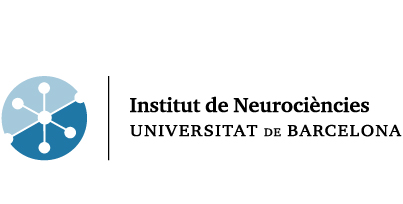
IRIA SAN MIGUEL
Position: Ramón y Cajal research fellow
Research team
Vittoria Spinosa
Early stage researcher
vittoria.spinosa (at) ub.edu
Konstantina Paraskevoudi
Administrative and technical staff
nadia.paraskevoudi (at) ub.edu
Contact details
Dr. Iria San Miguel
Department of Psicologia Clínica i Psicobiologia
Faculty of Psychology, P. Vall d’Hebron 171
08035 Barcelona (Spain)
+34 933125050
isanmiguel (at) ub.edu
Research Interests
Active perception and predictive processing
Everyone is familiar with bistable stimuli like the Rubin vase, which can be perceived either as two faces or a vase. How is it possible that the same sensory stimulation can give rise to different percepts in different occasions? Such phenomena highlight the active nature of perception. The world we perceive is an interpretation of the information that arrives at our senses. A key factor in this interpretative process is prediction. The brain constantly and automatically formulates predictions regarding the sensory input. Sensory responses, and hence perception, are influenced by such predictions. We are interested in understanding the neural mechanisms that support predictive processing, and their effects on perception.
Motor-driven sensory prediction
An important source of sensory predictions is our own motor behaviour. How is it possible that the visual image remains still, despite we are constantly moving our body and our eyes? The solution lies in predictive processing: the sensory consequences of the organisms’ motor actions are predicted by the nervous system, and this prediction is used to compensate the effects of self-action during sensory processing. In our research, we make use motor-driven prediction to study predictive processing in audition. In a typical experiment, participants deliver auditory stimuli to themselves by pressing buttons. Comparing responses to self- and externally-generated sounds we can study the effects of motor-driven prediction in auditory processing.
Agency
How do we recognize ourselves as the agents of certain stimuli in the environment, when there is nothing that can differentiate such stimuli from other stimuli that we did not cause ourselves? The sensation of agency may arise from the effects of motor-driven sensory predictions on sensory processing. That is, whenever a sensation is cancelled out by a motor prediction, we may feel that we were the agent causing the stimulation. We are interested in understanding the precise relationship between motor-driven sensory predictions and the sensation of agency.
Current Research Lines
- Active perception and predictive processing
- Motor-sensory interactions
- Sense of agency
- Attention and Prediction
Technologies / methods
- The facilities of the BrainLab, where we are based, include two EEG labs equipped with shielded chambers and 64-channel Neuroscan EEG systems. We also have a Biopac system available for measuring additional psychophysiological measures (heart rate, skin conductance).
- Although our facilities at the Psychology faculty do not include these systems, we also conduct experiments using MEG, fMRI, TMS and other methodologies, in collaboration with expert groups of our international network of collaborators.
Highlighted publications
· Schröger, Marzecová & SanMiguel (2015) Attention and prediction in human audition: a lesson from cognitive psychophysiology. European Journal of Neuroscience.
· SanMiguel, Widmann, Bendixen, Trujillo-Barreto & Schröger (2013) Hearing Silences: Human Auditory Processing Relies on Preactivation of Sound-Specific Brain Activity Patterns. The Journal of Neuroscience.
· Bendixen, SanMiguel & Schröger (2012) Early electrophysiological indicators for predictive processing in audition: A review. International Journal of Psychophysiology.
· Timm, Schönwiesner, Schröger & SanMiguel (2016) Sensory suppression of brain responses to self-generated sounds is observed with and without the perception of agency. Cortex.
· SanMiguel, Todd & Schröger (2013) Sensory suppression effects to self‐initiated sounds reflect the attenuation of the unspecific N1 component of the auditory ERP. Psychophysiology.



